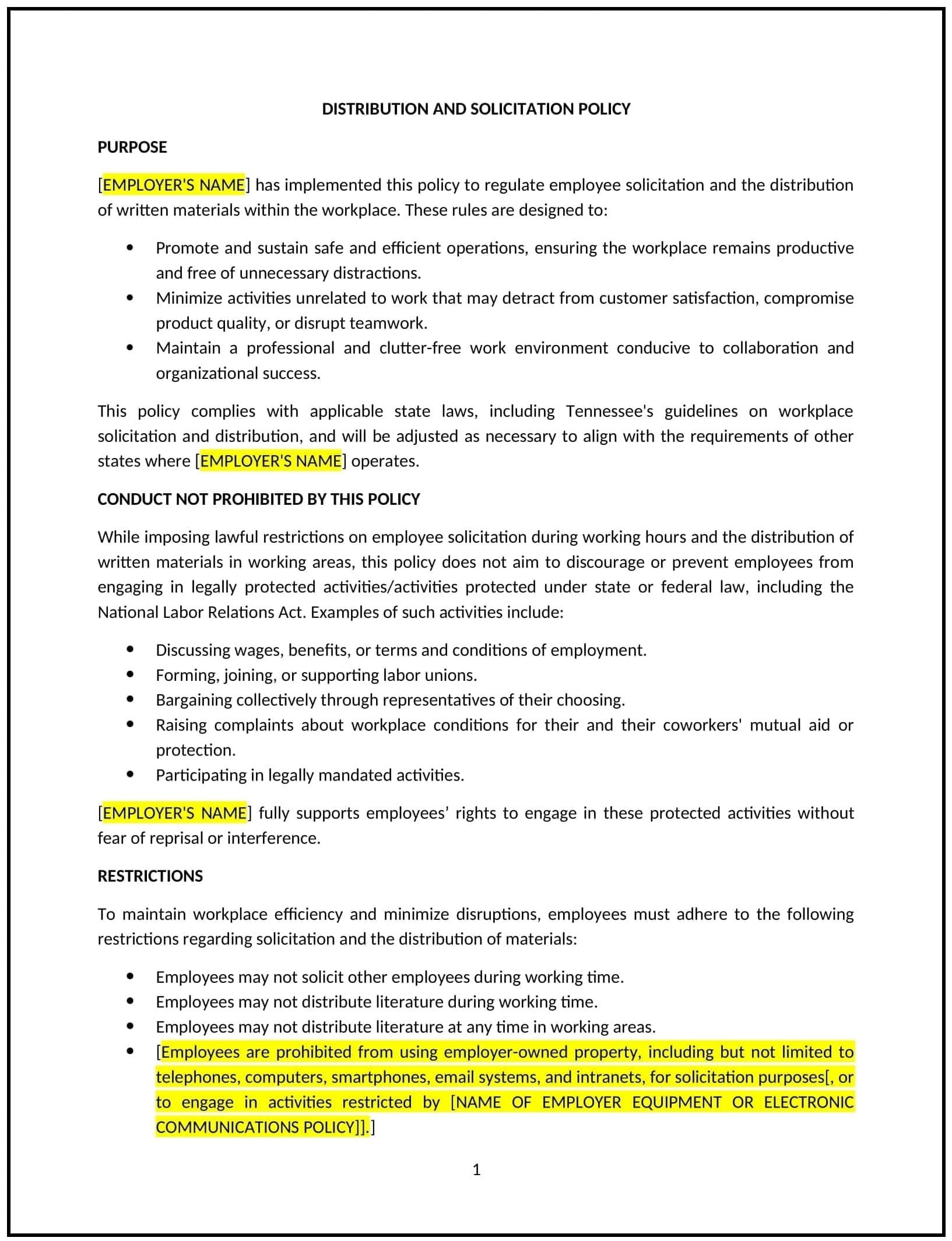Distribution and solicitation policy (Tennessee): Free template
Got contracts to review? While you're here for policies, let Cobrief make contract review effortless—start your free review now.

Customize this template for free
Distribution and solicitation policy (Tennessee)
This distribution and solicitation policy is designed to help Tennessee businesses establish guidelines for managing the distribution of materials and solicitation activities in the workplace. It outlines procedures for maintaining a professional work environment and minimizing disruptions.
By adopting this policy, businesses can ensure a focused and productive workplace while respecting employees’ rights and interests.
How to use this distribution and solicitation policy (Tennessee)
- Define prohibited activities: Clarify what constitutes unauthorized distribution or solicitation, such as handing out flyers or selling products during work hours.
- Set permitted activities: Specify when and where distribution or solicitation is allowed, such as during breaks or in designated areas.
- Address third-party involvement: Explain rules for external parties, such as vendors or organizations, distributing materials or soliciting employees.
- Train managers: Educate supervisors on enforcing the policy and addressing violations.
- Review and update: Assess the policy annually to ensure it aligns with evolving business needs and workplace dynamics.
Benefits of using this distribution and solicitation policy (Tennessee)
This policy offers several advantages for Tennessee businesses:
- Maintains a professional environment: Reduces disruptions and ensures employees can focus on their work.
- Protects employee privacy: Limits unsolicited contact from external parties.
- Enhances productivity: Minimizes distractions caused by unauthorized distribution or solicitation.
- Promotes fairness: Provides clear guidelines for all employees and third parties.
- Aligns with best practices: Supports a structured approach to workplace management.
Tips for using this distribution and solicitation policy (Tennessee)
- Communicate the policy: Share the policy with employees and include it in the employee handbook.
- Provide training: Educate managers on enforcing the policy and addressing violations.
- Monitor compliance: Regularly review workplace activities to ensure adherence to the policy.
- Address issues promptly: Take corrective action if unauthorized distribution or solicitation occurs.
- Update regularly: Assess the policy annually to ensure it aligns with evolving business needs.